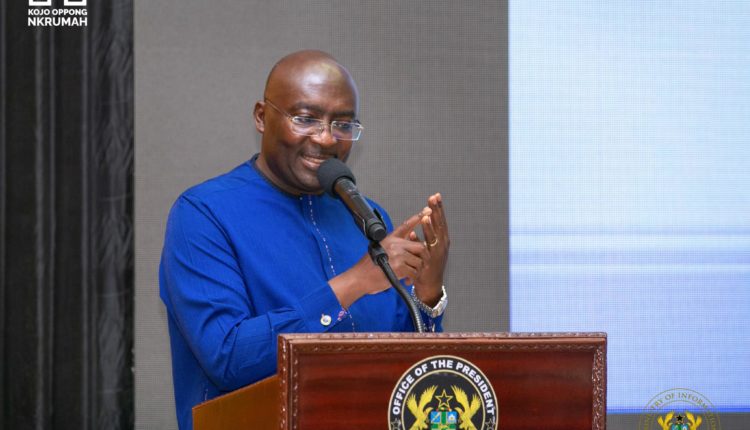The Vice President of Ghana, Dr. Mahamudu Bawumia has announced the government’s new initiative to provide free tertiary education for children of cocoa farmers, aiming to ease the financial burden on these families through enhanced educational support.
“The government has decided that, starting next year, COCOBOD will cover the tertiary education fees of cocoa farmers’ children at no cost to the farmer,” he announced.
Addressing the chiefs and people of Jacobu on Farmers’ Day, the New Patriotic Party (NPP) presidential candidate, Dr. Bawumia highlighted the essential role cocoa farmers play in Ghana’s economy and outlined how this new policy empowers families with opportunities for economic mobility and stability.
Dr. Bawumia explained that previously, COCOBOD provided scholarships to help cover secondary school costs for children of cocoa farmers. However, with the Free SHS policy now fully covering secondary education, the government has decided to redirect these funds to support tertiary education instead.
“COCOBOD will launch this new scholarship scheme for cocoa farmers’ children in tertiary institutions starting next year,” he stated, adding that the initiative will cover tuition and related costs for eligible students, allowing children of cocoa farmers to pursue their education without financial constraints.
In addition to this educational support, Dr. Bawumia underscored his commitment to advancing agricultural development. He pledged to establish District Agricultural MechanisationCentres across farming districts, providing affordable equipment to help expand production. He believes these centers will significantly boost agricultural productivity, enabling farmers to modernize their practices and enhance their yields.
Through these initiatives, Dr. Bawumia reaffirmed the government’s dedication to improving the livelihoods of cocoa farmers and supporting the next generation in accessing quality education, ultimately contributing to Ghana’s economic growth and agricultural progress.


Comments are closed.